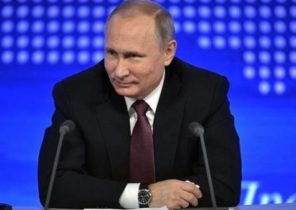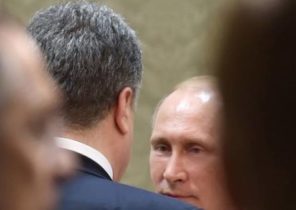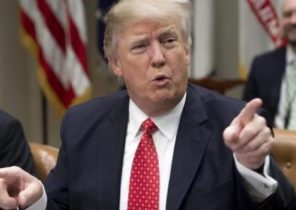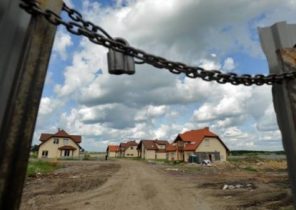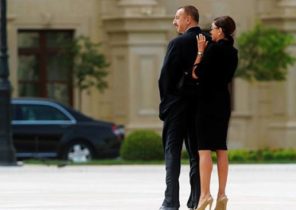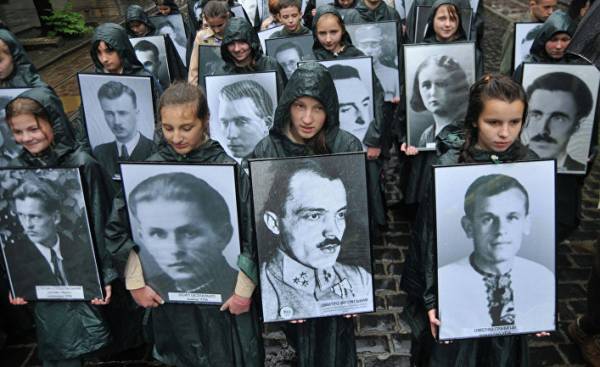
In the nineteenth century, the great historian Gordon Jozef (Józef Szujski) wrote that “the false story produces a false policy.” The simplifications that are sometimes reborn in the falsification of history, apt a peoples, but for Ukrainians they can lead to catastrophic political consequences. In Poland the problem of the dialogue with Ukraine is connected with the existing on the Dnieper, the cult of the OUN-UPA (banned in the Russian organizations — approx. ed.), denial of the fact that arranged the UPA Volyn massacre was ethnic cleansing, and assessments of “operation Vistula” (military-administrative action 1947 to evict non-Polish population of the South-Eastern regions of Poland — approx. TRANS.). We do not understand, do Volyns’kyi question was so complex that it is impossible to separate the as from the national self-determination and on the earlier history. Controversial topics there is much more. In General, they relate to the nature and consequences of belonging part of the lands of modern Ukraine to the First and the Second Polish Republic, as well as evaluation of the Polish policy towards Ruthenians (Ukrainians).
These problems stem from the fact that the historical consciousness of the Ukrainian elite is based on a rather risky from the point of view of methodology, the belief that the emergence of the Ukrainian state — is a logical continuation, at least a thousand years of history of Ukrainians and their struggle for independence, and the Ukrainian people from time immemorial had a right to self-determination and its protection by any means. Many consider that acceptable even criminal methods, because without the struggle against the “occupants” of the Muscovites and poles, could not receive the most importantly — the Ukrainian state.
“Who is not with us is against us”
The war with Russia dramatically increased the popularity of the nationalist ideology, which have already started to conquer the minds of the young and spread to Galicia and Central Ukraine. Recently, the Kyiv city Council listened to the demands of the chauvinistic party “Freedom” and agreed to rename one of the capital’s main arteries in the street Shukhevych, commander in chief of the UPA and the Wehrmacht officer who, in all likelihood, was involved in the murder of Jews in Belarus. I should add that the Ukrainian national memory Institute has recognized that the prohibition of Nazi propaganda does not apply to the symbolism of the SS division “Galicia”.
At the same time, the Ukrainian public condemned as Putin, who in an interview with the President of the Macron, called living in XI century French Queen, Anna Russian, and those who rightly argued that if the Kremlin distorts the facts, we should not respond in the same way, because the history of Russia — is part not only of Ukrainian national history. However, with few exceptions Ukrainian intellectuals do not try to stop the nationalization of the public discourse. Floating in the air idea “who is not with us is against us” has many strong impact.
To strengthen this Patriotic posturing helped, of course, Russian aggression, war and the final collapse of the slogans based on the post-Soviet nostalgia, and on any ideas that seemed Pro. The Ukrainian nationalists now call Poland their enemy, but a vision of history that they are promoting (heroism in it is any form of struggle against “occupation”) becomes the basis of historical conflict not only with Russians, but also poles, Jews, and, to some extent, Germans and Belarusians. Justify the collaboration of Ukrainian nationalists with the Third Reich and their participation in the mass crimes of the Nazis against the civilian population is contrary to the existing consensus in the world against the unconditional condemnation of such practices, and, therefore, separates Ukraine from Europe.
This is not a light cold
Unfortunately, the President Poroshenko and the Ukrainian government did not realize the seriousness of these problems or guided by domestic political considerations, I believe that to change the course of historical policy they are not profitable. Two years later, presidential elections will take place, so the patriots will be demanded by the electorate. Nationalists actively written in the volunteers and go fight on the front.
Now Kiev says the Polish government “nationalist” force that appeared in Europe in isolation, and therefore has a negligible (compared with Germany) in the formation of the policy of NATO and the EU towards Ukraine and Russia. This, of course, only a pretext. To warnings, which formulate the previous Polish government in Kiev also did not listen. What else besides the neglect of Poland can explain the fact that we still failed to make a showing in Ukraine of the film “Volyn” or exceptions to the Ukrainian law on decommunization of the item, which puts criticism of the UPA outside the law. Even those Ukrainians who joined the historical dialogue with the poles, often categorically declare that a sovereign nation has the right to choose his own heroes. They see the deceptive symmetry between the history of the Polish and Ukrainian peoples, or even promote the idea that Poland wants to “colonize” the Ukraine — this time in the mental plane. This implies that the root of all problems was the party “law and Justice” (PiS). The spread of this belief contribute to certain Polish circles, who had underestimated the development of Ukrainian nationalism, and now illusions that this is only a “mild cold”.
This position is exceptionally short-sighted. Excuse collaboration with the Nazis and mass crimes against the civilian population is alarming not only in the vast number of poles, but also in Israel and — in General — have Western friends of Ukraine. Historical politics may not be the subject of sovereignty as it affects how the country is perceived abroad, and determines whether the political elites of neighboring countries to convince their own citizens that defend against attacks Ukraine are in need of help. In the Kremlin understand this, but in Kiev, most surprisingly, no. The European Parliament in 2010, has warned Ukraine that justify the collaboration with the Nazis and European values are incompatible.
The falsification of history and the distortion of facts, which deals with Russia, it is impossible to answer nationalist counter-propaganda because of it, the country risks losing accumulated in recent years, moral capital, and the Ukrainians — the image of the people which is superior to the Russians in terms of political maturity. The historical strategy of counter-propaganda can lead to the fact that the differences between the aggressor and his victim will be erased, as both sides ignore historical truth, and in a similar way justify the crimes of the totalitarian Soviet Union or criminal OUN and UPA. Knowing the cynicism of the Kremlin, it can be assumed that there is already gleefully rubbing their hands or even try to convince the Ukrainian nationalists in the loyalty of their caricatured version of history.
Ukrainian McCarthyism
For the Polish elites, where for many years there is a political consensus about supporting the Ukraine, historic Kiev’s policy matters in foreign and domestic political aspect. “Revolution of dignity” and the idealism of thousands of volunteers who came to the defense of the independence of Ukraine, in Poland caused universal admiration. Now the same is the General confusion is the fact that in Ukraine highlight people who are able to incite hatred, as Shukhevych, and not those who could unite the people as defending the Donetsk airport “cyborgs”.
There are concerns that the restriction of pluralism in public debates and nationalisation of history in Ukraine will lead to the emergence of the Ukrainian McCarthyism, and that will bury hopes for a successful transformation and Europeanization of this country in the foreseeable future. In this case, the poles will change their attitude to the Ukrainians, and the popularity will gain power (often under the impact of structures associated with Russia) who believe that the policy of Poland towards Ukraine should be linked to the issue of banderizm. It will negatively affect a huge number of Ukrainian migrants in Poland, some of which (including the holders of the Polish Card, but de facto, the Ukrainians) in the coming years will be Polish citizens.
Intensive strengthening social and economic ties between Poland and Ukraine makes the discharge of tension at the historical background, important not only for external but also for internal policies. In this situation you need to establish a dialogue with the Ukrainians, and to take active steps to move Ukraine a joint version of history, which will become an alternative to the nationalist approach. It would be appropriate as the relevant policy statements and institutional solutions. It should also establish cooperation with Israel and Germany, to develop a strategy for responding to the justification of totalitarian crimes. Finally, it should be remembered that in the interests of the poles — a people who, including, in the twentieth century, not bad compared to other withstood the test of history is to show other example of the ability to soberly assess their past. If we don’t do this, chances are that in this way will our neighbors, will be much less.
Łukasz Adamski is a historian, Deputy Director of the Centre for Polish-Russian dialogue and understanding. 2014 — member of the Special OSCE monitoring mission in Ukraine
